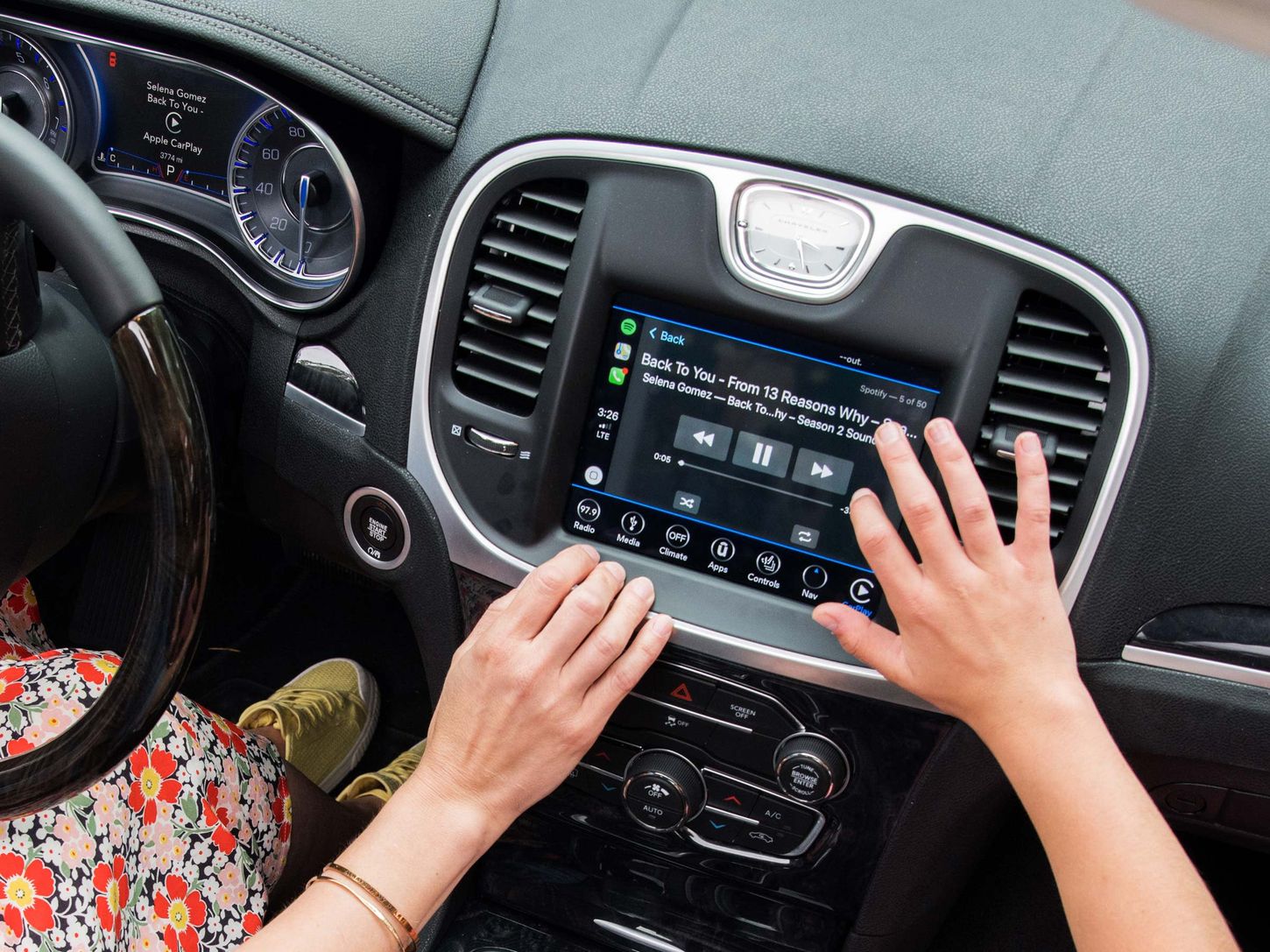Home>Production & Technology>Digital>How To Become A Digital Music Distributor


Digital
How To Become A Digital Music Distributor
Published: March 9, 2024
Learn how to become a digital music distributor and enter the thriving digital music industry. Discover the steps to start distributing digital music today.
(Many of the links in this article redirect to a specific reviewed product. Your purchase of these products through affiliate links helps to generate commission for AudioLover.com, at no extra cost. Learn more)
Table of Contents
Introduction
The digital music distribution industry has undergone a remarkable transformation in recent years, revolutionizing the way music is shared and consumed. As the demand for digital music continues to surge, the role of digital music distributors has become increasingly pivotal. These distributors serve as the bridge between artists and record labels on one end and digital platforms and streaming services on the other, facilitating the seamless delivery of music to a global audience.
In this digital age, the traditional barriers to music distribution have been dismantled, allowing independent artists and labels to reach listeners worldwide with unprecedented ease. This democratization of music distribution has empowered creators, enabling them to bypass the limitations of physical distribution and connect directly with their audience through digital channels.
As a digital music distributor, you have the opportunity to play a crucial role in shaping the music landscape, amplifying the voices of emerging artists, and contributing to the vibrancy of the industry. By leveraging digital platforms and cutting-edge technologies, you can facilitate the dissemination of diverse musical expressions, fostering a rich tapestry of sounds that resonates with audiences across the globe.
The digital music distribution ecosystem is dynamic and multifaceted, presenting a myriad of opportunities and challenges. Navigating this landscape requires a blend of strategic acumen, technological proficiency, and a deep understanding of the evolving preferences of music consumers. As a digital music distributor, you will need to stay attuned to the latest trends, harnessing innovative approaches to optimize the visibility and impact of the music you distribute.
In the subsequent sections, we will delve into the intricacies of becoming a digital music distributor, exploring the essential steps, strategies, and considerations that can empower you to thrive in this dynamic domain. From forging meaningful partnerships with artists and record labels to orchestrating effective marketing campaigns and managing royalties, each facet of the digital music distribution process will be dissected to equip you with the knowledge and insights needed to embark on this exhilarating journey.
Understanding the Digital Music Distribution Industry
The digital music distribution industry encompasses the intricate network of processes and platforms that facilitate the dissemination of music in digital formats to a global audience. This multifaceted landscape is characterized by a diverse array of stakeholders, including artists, record labels, digital music distributors, streaming services, and online retailers. At its core, digital music distribution revolves around the seamless delivery of music from creators to consumers, leveraging digital platforms and technologies to transcend geographical boundaries and connect with listeners worldwide.
In this digital era, the traditional constraints of physical music distribution have been transcended, ushering in a new era of accessibility and connectivity. Digital music distributors serve as the linchpin of this ecosystem, serving the pivotal role of bridging the gap between artists and record labels on one end and digital platforms and streaming services on the other. By leveraging their expertise in digital delivery mechanisms, metadata management, and rights administration, these distributors enable music to reach a global audience with unprecedented ease and efficiency.
The proliferation of digital platforms and streaming services has redefined the dynamics of music consumption, offering listeners a vast repertoire of music at their fingertips. This shift towards digital consumption has not only expanded the reach of music but has also transformed the monetization models, prompting a paradigm shift in revenue streams for artists and labels. As a result, digital music distributors play a crucial role in optimizing the visibility and commercial potential of music releases, harnessing data-driven insights and promotional strategies to maximize the impact of each release.
Moreover, the digital music distribution industry is characterized by its dynamic nature, constantly evolving in response to technological advancements, consumer behaviors, and industry trends. This dynamism necessitates a proactive approach to staying abreast of the latest developments, embracing emerging platforms, and adapting to the shifting preferences of music consumers. By embracing innovation and agility, digital music distributors can capitalize on emerging opportunities and navigate the complexities of this ever-evolving landscape.
In essence, understanding the digital music distribution industry entails grasping the intricate interplay between creators, distributors, platforms, and consumers within a digital ecosystem. By recognizing the transformative potential of digital distribution and the nuances of engaging with digital platforms, aspiring digital music distributors can position themselves to thrive in this dynamic and exhilarating domain.
Steps to Becoming a Digital Music Distributor
Becoming a digital music distributor entails navigating a multifaceted landscape that demands a strategic blend of industry knowledge, technological proficiency, and relationship-building acumen. The following steps outline the essential trajectory for aspiring digital music distributors to embark on this transformative journey:
-
Acquire Industry Insight: Begin by immersing yourself in the intricacies of the music industry, gaining a comprehensive understanding of the digital music ecosystem, emerging trends, and the evolving dynamics of music consumption. Stay attuned to industry publications, attend music conferences, and engage with industry professionals to glean insights into the nuances of digital music distribution.
-
Legal and Business Considerations: Familiarize yourself with the legal and business aspects of music distribution, including copyright laws, licensing agreements, and revenue sharing models. Establish a robust understanding of intellectual property rights, royalties, and contractual frameworks to ensure compliance and ethical business practices.
-
Technological Proficiency: Embrace digital technologies and distribution platforms, equipping yourself with the technical acumen to navigate digital distribution channels, metadata management systems, and content delivery networks. Stay abreast of emerging technologies and distribution tools to optimize the efficiency and efficacy of music delivery.
-
Build Industry Relationships: Cultivate meaningful relationships with artists, record labels, and industry stakeholders, fostering a network of collaborators and partners. Establishing trust and rapport within the industry can pave the way for mutually beneficial collaborations and facilitate the acquisition of diverse music catalogs for distribution.
-
Licensing and Agreements: Navigate the intricacies of music licensing and distribution agreements, ensuring clarity and transparency in contractual negotiations. Develop a keen understanding of licensing terms, territorial rights, and revenue distribution mechanisms to forge equitable and sustainable partnerships with artists and labels.
-
Metadata Management: Master the art of metadata management, understanding the pivotal role of accurate metadata in optimizing music discoverability and rights administration. Proficiency in metadata standards and best practices is essential for ensuring the seamless delivery and monetization of music releases across digital platforms.
-
Content Delivery Optimization: Strategize the optimization of content delivery across digital platforms, tailoring distribution strategies to maximize the visibility and impact of music releases. Leverage data-driven insights and analytics to refine distribution tactics and amplify the reach of distributed music content.
-
Compliance and Ethical Practices: Uphold ethical and transparent business practices, prioritizing compliance with industry standards, copyright regulations, and data privacy laws. Adherence to ethical guidelines and industry best practices is integral to fostering trust and credibility within the music distribution landscape.
By embarking on this comprehensive trajectory, aspiring digital music distributors can equip themselves with the knowledge, skills, and relationships needed to navigate the complexities of the digital music distribution industry and carve a meaningful presence within this dynamic domain.
Building Relationships with Artists and Record Labels
Building robust and enduring relationships with artists and record labels is a cornerstone of success in the digital music distribution landscape. These relationships form the bedrock of collaborative endeavors, underpinning the acquisition and distribution of diverse music catalogs while fostering a climate of trust, transparency, and mutual benefit.
To initiate this process, aspiring digital music distributors should prioritize proactive engagement with artists and record labels, demonstrating a genuine appreciation for their craft and a commitment to amplifying their creative endeavors. This entails attending music events, showcases, and industry gatherings to forge meaningful connections with artists and label representatives, fostering an environment of open dialogue and collaboration.
Moreover, cultivating a deep understanding of the unique aspirations, challenges, and creative visions of artists and labels is pivotal in nurturing these relationships. By actively listening to their perspectives, acknowledging their artistic autonomy, and aligning distribution strategies with their creative objectives, digital music distributors can engender a sense of partnership and shared purpose.
Transparency and integrity serve as linchpins in fostering enduring relationships with artists and labels. By articulating clear and equitable terms in distribution agreements, prioritizing fair compensation, and upholding ethical business practices, digital music distributors can instill confidence and trust within their artist and label partners, laying the groundwork for sustained collaboration.
Furthermore, embracing a collaborative mindset and a spirit of innovation can catalyze the co-creation of tailored distribution strategies that resonate with the unique identities and aspirations of artists and labels. By coalescing creative insights, market intelligence, and technological acumen, digital music distributors can coalesce a shared vision for amplifying the reach and impact of music releases, fostering a climate of synergy and collective achievement.
In essence, the process of building relationships with artists and record labels transcends transactional interactions, evolving into a narrative of partnership, shared vision, and mutual growth. By nurturing these relationships with empathy, integrity, and a commitment to amplifying the voices of creators, digital music distributors can forge enduring alliances that underpin the vibrancy and diversity of the digital music distribution landscape.
Setting Up Distribution Channels
Setting up robust and diversified distribution channels is a pivotal facet of the digital music distribution process, serving as the conduit through which music reaches a global audience. The strategic orchestration of distribution channels entails a multifaceted approach that encompasses digital platforms, streaming services, online retailers, and emerging distribution technologies. By leveraging a diverse array of distribution channels, digital music distributors can optimize the visibility, accessibility, and commercial potential of music releases, amplifying their resonance with audiences worldwide.
The first step in setting up distribution channels involves forging partnerships with a spectrum of digital platforms and streaming services. This entails navigating the intricacies of platform-specific requirements, submission processes, and content guidelines to ensure seamless integration and optimal visibility for music releases. By establishing a robust network of digital platform partners, digital music distributors can amplify the reach of music releases, tapping into the expansive user bases and global reach of these platforms.
In addition to digital platforms, online retailers play a pivotal role in the distribution ecosystem, offering diverse avenues for music discovery and consumption. By cultivating relationships with online retailers, digital music distributors can position music releases within curated storefronts, genre-specific showcases, and promotional campaigns, enhancing their discoverability and commercial potential. Moreover, optimizing metadata and promotional assets for online retailers is integral to maximizing the impact of music releases within these channels, harnessing compelling visuals, descriptive content, and strategic placement to captivate potential listeners.
Furthermore, the advent of emerging distribution technologies, such as blockchain-based platforms and decentralized networks, presents innovative opportunities for expanding distribution channels. By embracing these technologies, digital music distributors can explore novel avenues for music delivery, leveraging decentralized ecosystems to transcend traditional intermediaries and connect directly with audiences. This forward-looking approach to distribution channels empowers digital music distributors to embrace cutting-edge technologies and pioneer new paradigms of music dissemination.
In essence, setting up distribution channels necessitates a strategic blend of industry partnerships, technological acumen, and a forward-looking mindset. By curating a diverse and expansive network of distribution channels, digital music distributors can amplify the reach and impact of music releases, fostering a climate of accessibility, diversity, and innovation within the digital music distribution landscape.
Marketing and Promoting Music Releases
Marketing and promoting music releases constitute a pivotal phase in the digital music distribution process, serving as the catalyst for amplifying the visibility, resonance, and commercial success of music within the digital landscape. This multifaceted endeavor encompasses a spectrum of strategic initiatives, creative campaigns, and data-driven approaches aimed at captivating audiences, fostering engagement, and maximizing the impact of music releases.
At the core of marketing and promoting music releases lies the art of storytelling. By crafting compelling narratives that encapsulate the essence and emotive resonance of each music release, digital music distributors can forge authentic connections with audiences, transcending mere promotional endeavors to evoke genuine emotional responses. This narrative-driven approach entails delving into the creative inspirations, thematic underpinnings, and artistic journeys that underpin each music release, weaving a tapestry of storytelling that captivates and resonates with listeners.
Moreover, harnessing the power of digital platforms and social media channels is integral to amplifying the reach and impact of music releases. By orchestrating targeted digital marketing campaigns, leveraging social media engagement, and harnessing data-driven insights, digital music distributors can tailor promotional strategies that resonate with diverse audience segments, fostering organic discovery and engagement. This entails the strategic utilization of visual content, interactive experiences, and immersive storytelling to captivate audiences across digital touchpoints, fostering a climate of connectivity and resonance.
Furthermore, the curation of tailored promotional assets, including music videos, visualizers, and immersive content, serves as a cornerstone of effective music promotion. By infusing these assets with creative ingenuity, visual storytelling, and thematic coherence, digital music distributors can amplify the emotive impact of music releases, fostering a visual and auditory tapestry that captivates and enthralls audiences. This visual storytelling approach transcends conventional promotional endeavors, immersing audiences in a multisensory journey that deepens their connection with the music and the creative vision behind it.
In essence, marketing and promoting music releases entail a harmonious fusion of storytelling, digital engagement, and visual creativity, culminating in a symphony of promotional endeavors that resonate with audiences on a profound level. By embracing these multifaceted strategies, digital music distributors can amplify the resonance and commercial potential of music releases, fostering a climate of discovery, engagement, and emotive connection within the digital music landscape.
Managing Royalties and Payments
Managing royalties and payments is a critical aspect of the digital music distribution process, encompassing the intricate mechanisms through which artists, songwriters, and rights holders are compensated for the usage and dissemination of their music. This multifaceted endeavor necessitates a meticulous approach to rights administration, revenue tracking, and transparent financial practices, ensuring equitable compensation for creators while upholding ethical and legal standards within the music industry.
At the heart of managing royalties and payments lies the imperative of rights administration, encompassing the accurate attribution of ownership, usage rights, and revenue entitlements for each music release. Digital music distributors play a pivotal role in overseeing this process, leveraging robust metadata management systems and rights databases to ensure the precise allocation of royalties to the respective rights holders. By maintaining comprehensive records of rights ownership, usage permissions, and revenue shares, digital music distributors can uphold transparency and accountability in the distribution of royalties, fostering trust and confidence within the artist and rights holder community.
Furthermore, the orchestration of royalty tracking and reporting mechanisms is integral to the equitable compensation of creators within the digital music ecosystem. Digital music distributors employ sophisticated tracking technologies and data analytics to monitor the usage and performance of music releases across digital platforms, generating detailed reports on streams, downloads, and audience engagement. By leveraging these insights, distributors can calculate accurate royalty shares, facilitate revenue distribution, and provide transparent royalty statements to artists and rights holders, empowering them with visibility into the commercial performance of their music.
In addition to rights administration and royalty tracking, the expeditious and transparent disbursement of payments is paramount in fostering trust and sustainability within the digital music distribution landscape. Digital music distributors prioritize efficient payment processing, ensuring timely and accurate disbursement of royalties to artists and rights holders in accordance with contractual agreements and industry standards. This commitment to prompt and transparent payments not only cultivates goodwill and trust but also reinforces the ethical and equitable ethos of the distribution process, fortifying the collaborative fabric of the music industry.
In essence, managing royalties and payments within the digital music distribution landscape entails a commitment to precision, transparency, and ethical stewardship. By upholding rigorous standards of rights administration, royalty tracking, and payment disbursement, digital music distributors can fortify the financial ecosystem of the music industry, empowering creators with equitable compensation and fostering a climate of trust, integrity, and sustainability.
Conclusion
In conclusion, the journey to becoming a digital music distributor is a dynamic and multifaceted endeavor that demands a strategic blend of industry acumen, technological proficiency, and a deep commitment to fostering meaningful connections within the music ecosystem. Aspiring digital music distributors are poised to navigate a landscape characterized by transformative opportunities, technological innovation, and the democratization of music distribution.
The digital music distribution industry stands at the nexus of creativity and connectivity, serving as the conduit through which diverse musical expressions resonate with audiences worldwide. By embracing a narrative-driven approach to music distribution, digital music distributors can amplify the emotive resonance of music releases, fostering authentic connections with listeners and transcending geographical boundaries.
Moreover, the strategic orchestration of distribution channels, the curation of compelling promotional campaigns, and the meticulous management of royalties and payments collectively underpin the transformative potential of digital music distribution. By embracing these multifaceted endeavors with empathy, integrity, and a forward-looking mindset, aspiring digital music distributors can carve a meaningful presence within the digital music landscape, amplifying the voices of creators and contributing to the vibrancy of the industry.
As the digital music distribution industry continues to evolve in response to technological advancements and shifting consumer behaviors, aspiring digital music distributors are poised to embrace innovation, cultivate enduring relationships, and champion equitable and transparent practices. By harnessing the transformative power of digital distribution, these distributors can catalyze a paradigm shift in the accessibility, diversity, and resonance of music, fostering a climate of inclusivity and creativity within the global music ecosystem.
In essence, the journey to becoming a digital music distributor transcends transactional endeavors, evolving into a narrative of partnership, innovation, and collective empowerment. By embracing this transformative journey with passion, purpose, and a commitment to amplifying the voices of creators, aspiring digital music distributors can navigate the complexities of the digital music distribution landscape, leaving an indelible imprint on the industry and shaping the sonic tapestry of the future.











